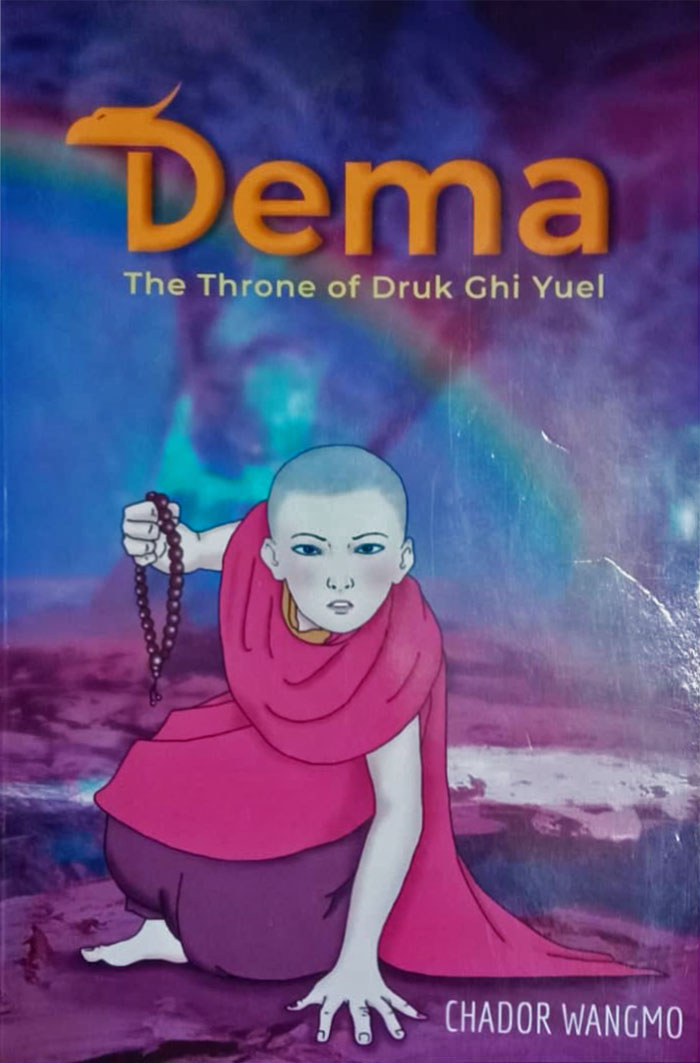Choki Wangmo
If you are looking for an adventurous read for your child, pick up the local children’s writer Chador Wangmo’s recent book, “Dema The Throne of Druk Ghi Yuel.”
Infused with Buddhist values and patriotic names like Druk Nagmo, it has an element of Bhutanese traditional beliefs too. The central figure is a young female, Dema, who draws her energy from the female Buddhist deity, Tara.

With great valour and trust in the female energy, she ventures into a three-day journey to save Druk ghi Yuel—the land of the dragons from doom, whose king-to-be mysteriously disappeared with an evil queen, Druk Nagmo. As soon as the disappearance is reported to Dema, she comes forward to take the uncertain journey. The subjects without a ruler, turns to Dema for solace who happens to be in the palace, meditating on Tara. Dema becomes the most capable individual to steer the kingdom’s future by saving their king.
She rides a white dragon and visits Chuni Gyep, the king of the 12 lands, named after 12 zodiac animals. He is known to have clairvoyance and guides Dema to find the abducted prince of Druk Ghi Yuel and save the evil soul of Druk Nagmo.
As the plot develops, Dema forges on the lone journey to the land of the death to find the soul of Druk Nagmo who was at the verge of death and dragged around by vicious beings when Dema arrived. The appearance of lights and fearful spirits are same as what we were taught about death—fleeting image of the lord of the evil and the lord of the virtuous according to one’s actions.
Unlike depiction of women in western fairy tales requiring the kiss of a charming prince to wake them up to life, the author has emphasised on the feminine power to save the evil by the virtuous. Dema represents virtue who takes an unprecedented journey to save the evil Druk Ngamo, whom she urges to seek redemption to liberate herself. The liberation, however depends on the self.
The storyline develops with the battle between the good and the evil, cause and effect, impermanence, and delok or those who return from death, rather staunch Buddhist principles. If the author was trying to convey Buddhist values to her young readers without being obvious, she has strongly used the word ‘soul’ than ‘mind or consciousness’ which doesn’t find a place in Buddhist dictionary.
A part of author’s belief in the goddess Tara is also visible in Dema and the way the stanzas of Tara’s prayer keep popping up in between chapters.
The sentences are short with common words but young readers might find it difficult remember the characters since they are many in number with typical traditional patriotic names. Confusion is not so far away. While the author took great pain to show the readers about Dema’s courage and determination, there is not a single mention about her physical appearance. Throughout the story, the reader wonders whether Dema is a dragon, human or a mix of human and magical creatures since she lives in the land of the dragons.
The book is not a bad read but it would require time for the young readers to recall who is who.
Dema The Throne of Druk Ghi Yuel
Writer: Chador Wangmo
ISBN 978-99936-733-9-2
Pages: 125
Price: Nu 250

